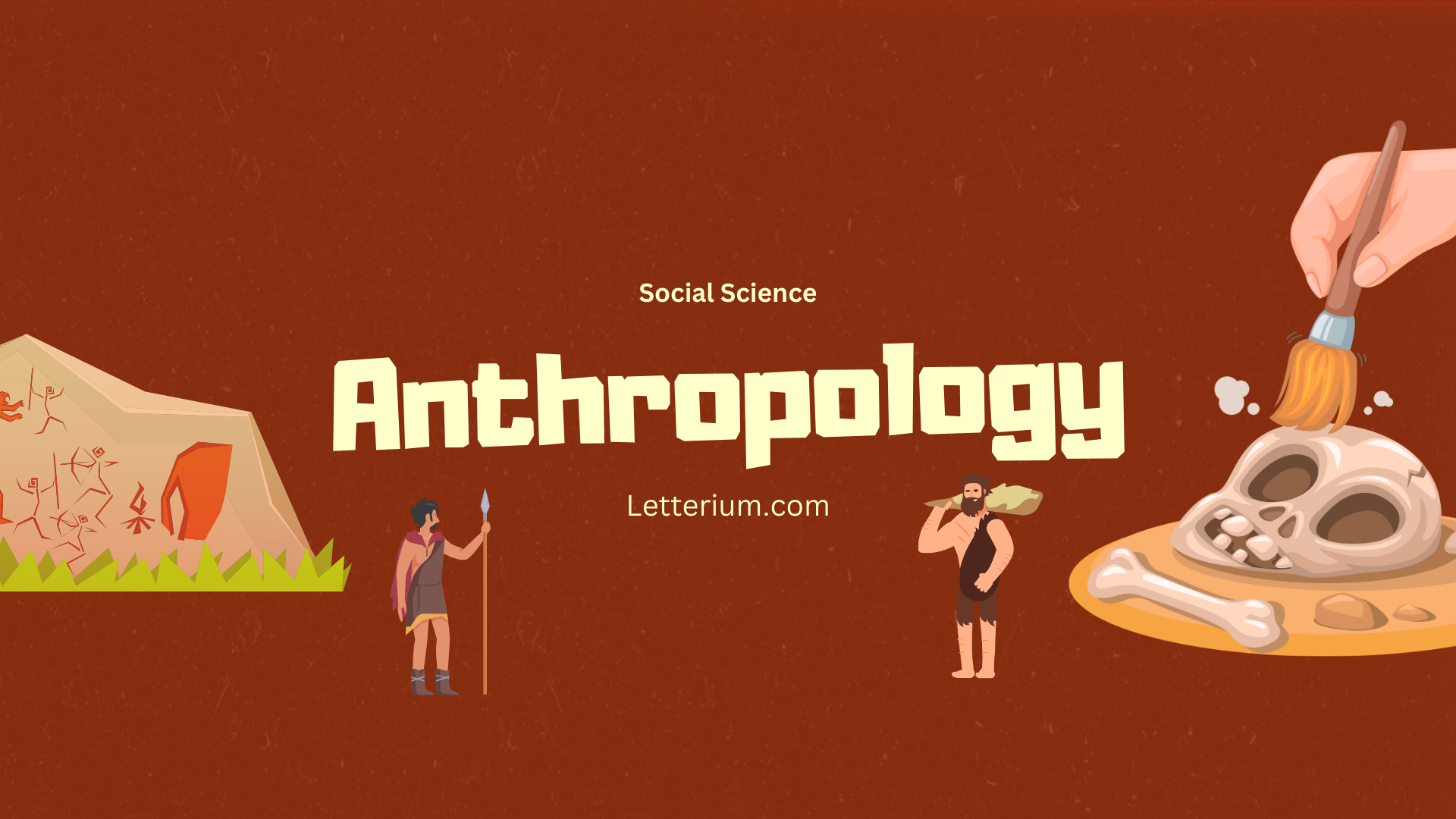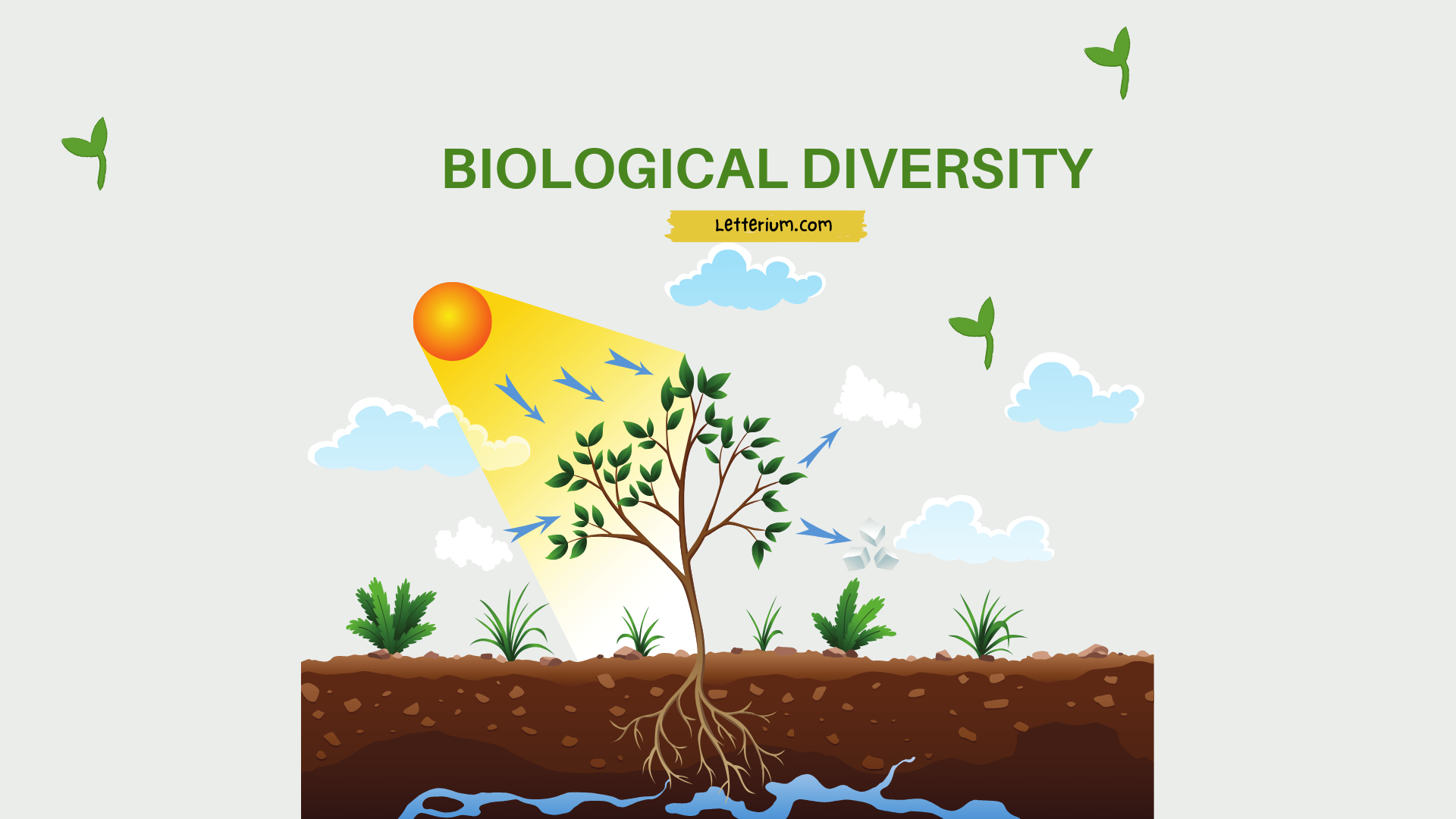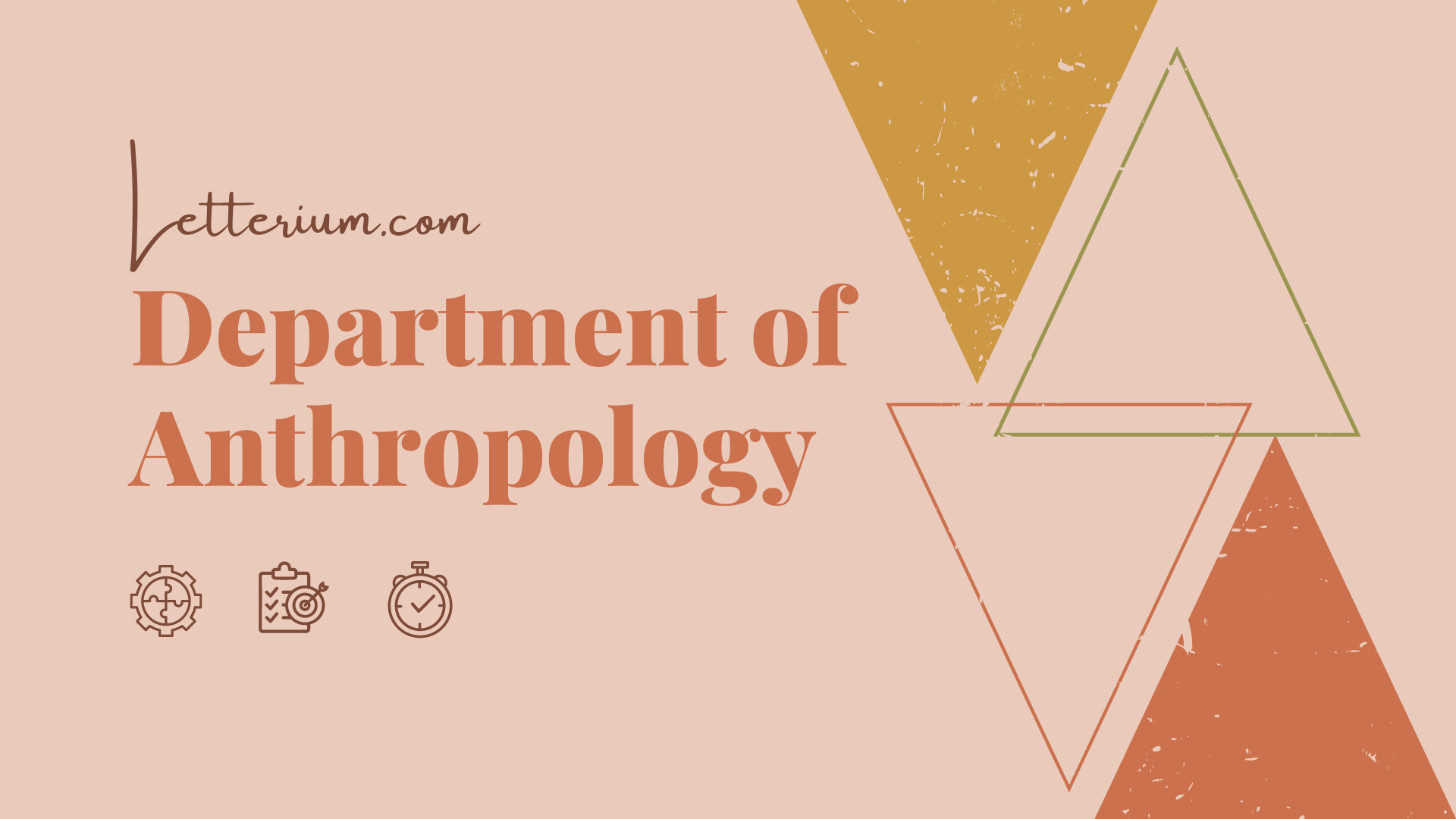Anthropology, the study of human societies, cultures, and their development, is a field that fascinates many. It is a discipline that seeks to understand the full sweep and complexity of cultures across all of human history. Through its various branches, anthropology examines the social and biological aspects of humans, including their linguistic practices, societal structures, and physical characteristics. This article delves into the rich history and the distinct branches of anthropology, offering insights into how this discipline helps us understand humanity's past, present, and potential future.
What is Anthropology?

Anthropology is the scientific study of humans, human behavior, and societies in the past and present. Its main aim is to understand the full breadth and depth of the human experience, which it achieves by examining the diverse ways in which humans have adapted to environmental changes and created varied forms of social organization. Anthropology is distinguished by its holistic approach, integrating insights from the social sciences, biological sciences, humanities, and physical sciences to provide a comprehensive understanding of humanity from multiple perspectives.
The field of anthropology is broadly divided into four main sub-disciplines, each focusing on different aspects of the human experience:
- Sociocultural Anthropology: This branch explores the social customs, cultural practices, and beliefs of different communities around the world. It examines how people in various societies live, organize themselves, and make meaning of their worlds through rituals, traditions, and everyday practices.
- Archaeological Anthropology: Archaeology focuses on the study of human history and prehistory through the excavation and analysis of artifacts, ruins, and other physical remains. It aims to reconstruct past human life ways to understand social structures, cultural evolution, and human-environment interactions over time.
- Biological (or Physical) Anthropology: This sub-discipline investigates the biological and evolutionary aspects of humans and their ancestors. It encompasses the study of human genetics, fossil records, human physical traits, and how these elements contribute to our understanding of human evolution and diversity.
- Linguistic Anthropology: Linguistic anthropology examines the role of language in social life. It explores how language influences social identity, group membership, power relations, and cultural beliefs, as well as how linguistic practices vary and change over time and space.
Anthropology's holistic and integrative approach enables a unique understanding of the complexities of human societies and cultures. By comparing and contrasting the lives of people in different contexts, anthropologists uncover patterns of behavior and thought, offering insights into the commonalities and differences that define the human condition. Through its commitment to fieldwork, participant observation, and an empathetic engagement with subjects, anthropology contributes significantly to our knowledge of the social and natural world, offering critical perspectives on issues such as globalization, inequality, and cultural change.
The Historical Evolution of Anthropology
Anthropology's roots can be traced back to the ancient civilizations, where scholars and thinkers were already pondering questions about human nature, society, and culture. However, it was not until the 19th century that anthropology began to emerge as a distinct scientific discipline in the West. Early anthropologists were influenced by the Enlightenment's ideals and the colonial expansion of European powers, which brought them into contact with diverse cultures around the globe.
The 19th century was marked by the development of several key anthropological theories. Evolutionism, for example, proposed that societies develop through stages from barbarism to civilization. Although now outdated and criticized, this theory laid the groundwork for future anthropological thought. The later part of the century saw the rise of fieldwork as a critical component of anthropological research, with pioneers like Franz Boas emphasizing the importance of collecting detailed, empirical data through direct observation and interaction with the subjects of study.
Throughout the 20th century, anthropology continued to evolve, with significant contributions from figures such as Bronislaw Malinowski, who advocated for the immersive fieldwork technique known as participant observation. The discipline also became increasingly specialized and branched out into various sub-fields, each focusing on different aspects of human life and culture.
Branches of Anthropology
Anthropology is divided into four primary sub-fields, each offering unique perspectives on the human experience: sociocultural, archaeological, biological (or physical), and linguistic anthropology.
Sociocultural Anthropology
Sociocultural anthropology examines the social patterns and cultural norms of living communities. It explores how people in different parts of the world live, organize their societies, and make meaning of their existence. Sociocultural anthropologists conduct ethnographic research, spending extended periods in communities, participating in and observing daily life, and gathering data through interviews, observations, and other qualitative methods.
Archaeological Anthropology
Archaeological anthropology, or archaeology, studies past human societies through their material remains. This branch looks at artifacts, architecture, and landscape modifications to understand social structures, cultural practices, and human-environment interactions over time. Archaeologists work in diverse settings, from ancient ruins to the remnants of recent historical events, piecing together the puzzles of human history.
Biological (Physical) Anthropology
Biological or physical anthropology focuses on the biological aspects of humans and their ancestors. It examines the evolutionary history of humans, biological diversity, and genetics, as well as the interaction between biology and culture. Subfields include paleoanthropology, the study of human evolution through fossil records, and primatology, the study of non-human primates to gain insights into human behavior and evolution.

Linguistic Anthropology
Linguistic anthropology explores the ways in which language reflects and influences social life. It studies language's role in cultural practices, social identity, power dynamics, and historical change. Linguistic anthropologists might analyze speech patterns, written texts, and other forms of communication to understand how language shapes human experience.
The Impact of Anthropology
Anthropology's broad, holistic approach to studying humanity provides essential insights into the complexities of cultures and societies. By examining the diversity of human experiences, anthropology fosters a deeper understanding and appreciation of the myriad ways people live, think, and interact with their environments. It challenges ethnocentric views, promoting cultural relativism and the recognition that no single way of life is inherently superior to others.
Moreover, anthropology has practical applications in addressing contemporary global issues. Anthropologists work in fields such as public health, environmental conservation, and international development, applying their insights to solve problems and improve lives. Their research informs policies and programs, ensuring they are culturally sensitive and effective.
Which Difference with Anthropology Today
Anthropology today is a dynamic and evolving field that continues to expand its focus and methodologies to address contemporary issues and incorporate technological advancements. The discipline's core branches—sociocultural, archaeological, biological, and linguistic anthropology—remain integral to its study, but they increasingly intersect with other fields and adapt to the changing world. Here are some key trends and areas of focus in contemporary anthropology:
Interdisciplinary Approaches
Modern anthropology often crosses traditional academic boundaries, integrating methods and theories from the social sciences, humanities, and natural sciences. This interdisciplinary approach enriches anthropological research, allowing for more nuanced analyses of complex human issues. For example, medical anthropology bridges biology and culture to address health disparities, while environmental anthropology combines ecological science with sociocultural analysis to tackle climate change and sustainability.
Technological Advancements
Technological innovations have transformed anthropological research. Digital tools and data analysis techniques enable more sophisticated studies of human genetics, bioarchaeology, and material culture. Virtual reality (VR) and augmented reality (AR) technologies offer new ways to reconstruct and explore ancient sites and artifacts. Meanwhile, digital ethnography and online fieldwork methods are increasingly used to study virtual communities and digital cultures, reflecting the importance of the internet and social media in contemporary life.
Globalization and Transnationalism
As the world becomes more interconnected, anthropologists are increasingly focused on globalization's impacts on local cultures, economies, and societies. Studies of migration, diaspora, and transnational networks examine how people maintain cultural identities and navigate life across borders. Anthropology today also addresses the tensions between global forces and local traditions, exploring how communities resist, adapt to, or transform under the influence of global capitalism, media, and cultural exchange.
Social Justice and Human Rights
Anthropologists are deeply engaged in social justice issues, using their research to highlight and combat inequalities based on race, ethnicity, gender, sexuality, class, and other social divisions. Anthropology's commitment to giving voice to marginalized communities and critiquing power structures aligns with broader movements for human rights and social change. Ethnographic studies provide critical insights into the lived experiences of those affected by discrimination, conflict, and displacement, informing policy and advocacy efforts.
Ethical Considerations and Decolonizing Methodologies
There is an ongoing reflection within anthropology on its historical complicity with colonialism and the ethical implications of research practices. Anthropologists today strive for more ethical, collaborative, and reciprocal relationships with the communities they study, emphasizing consent, transparency, and the co-production of knowledge. Decolonizing methodologies, which seek to challenge and reframe the power dynamics inherent in research, are gaining prominence, advocating for approaches that decenter Western epistemologies and value indigenous knowledge systems.
Public Anthropology and Applied Work
The relevance of anthropology extends beyond academia, with anthropologists increasingly involved in applied and public-oriented work. By engaging with public debates, policymaking, and community projects, anthropologists apply their insights to address real-world problems, from public health crises to cultural heritage preservation. Public anthropology also involves disseminating anthropological knowledge through media, public talks, and community outreach, making the discipline's insights accessible and impactful to a broader audience.
In summary, anthropology today is a vibrant field that addresses the complexities of the human condition in a globalized world. Through its holistic perspective, methodological innovations, and commitment to ethical and engaged research, anthropology contributes valuable insights into the challenges and opportunities facing contemporary societies.
Department of Anthropology
A Department of Anthropology within a university or academic institution is a hub for the study and research of human societies, cultures, biology, and languages across time and space. These departments offer undergraduate and graduate programs that train students in the theories, methods, and ethical considerations central to the field. Here's an overview of what you might expect to find in a Department of Anthropology, its structure, academic offerings, and the opportunities it provides.

Core Areas of Study
Departments of Anthropology typically organize their curriculum around the field's four main sub-disciplines:
- Sociocultural Anthropology: Courses in this area explore the diversity of human cultures and social structures, focusing on themes such as kinship, religion, politics, economy, gender, and ethnicity in various societies.
- Archaeological Anthropology: This area covers the study of past human societies through their material remains, offering insights into the human past, from ancient civilizations to more recent historical periods.
- Biological (or Physical) Anthropology: Courses focus on the biological aspects of humans and their primate relatives, including human evolution, genetics, forensic anthropology, and primatology.
- Linguistic Anthropology: This area examines the role of language in human societies, including studies on language acquisition, sociolinguistics, language and culture, and endangered languages.
Degree Programs
Anthropology departments typically offer a range of degree programs, including:
- Bachelor’s Degrees (BA or BS): Undergraduate programs provide a broad foundation in anthropological theory and methods, often allowing students to specialize in one of the sub-disciplines.
- Master’s Degrees (MA or MS): Graduate programs offer more specialized training and research opportunities, preparing students for professional careers in anthropology or further academic study.
- Doctoral Degrees (PhD): PhD programs are designed for students who wish to conduct advanced research and pursue careers in academia, research institutions, or high-level consultancy roles.
Research Opportunities
Research is a cornerstone of anthropology, and departments typically support a wide range of research projects and fieldwork opportunities. Students may have the chance to:
- Participate in archaeological digs
- Engage in ethnographic fieldwork in diverse communities
- Work in labs analyzing biological anthropological data
- Collaborate on linguistic documentation projects
Facilities and Resources
Departments of Anthropology often house specialized facilities and resources to support teaching and research, such as:
- Archaeology labs for processing and analyzing artifacts
- Biological anthropology labs with equipment for genetic, forensic, or osteological analysis
- Ethnographic collections and archives containing artifacts, recordings, and fieldnotes from ethnographic research
- Linguistic software and databases for analyzing linguistic data
Careers and Alumni Networks
Departments typically provide career services and maintain alumni networks to support graduates' transition to professional life. Careers in anthropology can be diverse, including positions in:
- Academia and research institutions
- Cultural resource management and heritage conservation
- Government and non-governmental organizations (NGOs)
- Public health and international development
- Corporate sectors, particularly in user experience research and market analysis
Community and Outreach
Many anthropology departments are deeply engaged with local and global communities through public lectures, workshops, and community-based research projects. These activities not only enhance students' learning experiences but also demonstrate anthropology's relevance to addressing contemporary social issues.
A Department of Anthropology offers a rich and dynamic environment for exploring the complexities of human life across time and space. Through a combination of rigorous academic training, hands-on research opportunities, and engagement with communities, students are equipped to understand and navigate the diverse world around them, contributing valuable insights into the challenges facing contemporary societies.
What Is Cultural Anthropology?
Cultural anthropology is a branch of anthropology focused on the study of cultural variation among humans and is dedicated to understanding the cultural aspects of human societies and their behaviors, beliefs, practices, and norms. It examines how people in different places live and how their customs, traditions, and social practices differ and are similar across cultures. Cultural anthropologists seek to understand the internal logic of societies through detailed ethnographic research, which involves immersive fieldwork, participant observation, and direct engagement with the communities studied.
Key Concepts and Methods
- Ethnography: The primary method used in cultural anthropology, ethnography involves extended fieldwork where anthropologists live among the people they study, often for months or years, to gain a deep understanding of their way of life from an insider perspective. This immersive approach allows for a detailed and nuanced portrayal of community life.
- Participant Observation: A hallmark of ethnographic research, participant observation involves taking part in the daily activities, rituals, and events of a community, while also observing them as a researcher. This method helps in understanding the context and meaning of behaviors and practices within their cultural setting.
- Cultural Relativism: Cultural anthropology promotes the principle of cultural relativism, which argues that all cultures are valid and can only be understood in their own terms. This perspective challenges ethnocentric judgments and seeks to prevent bias by viewing cultural practices without imposing outside standards.
Areas of Focus
Cultural anthropology covers a wide array of topics related to human culture, including:
- Social Organization: Studies how societies are structured and how individuals and groups interact within these structures.
- Economic and Political Systems: Looks at how communities organize their economic activities and governance, and how power and resources are distributed.
- Religion and Belief Systems: Explores spiritual beliefs, rituals, and religious institutions, and their roles in societal cohesion and individual identity.
- Language and Communication: Investigates how language reflects and influences social relations, identity, and cultural practices.
- Material Culture: Examines the role of objects and artifacts in human societies, from everyday tools to sacred items, and how they convey cultural meanings.
- Globalization and Change: Analyzes the impacts of global interconnectedness on local cultures, including issues of cultural exchange, adaptation, and resistance.
Applications and Relevance
Cultural anthropology has practical applications in various fields, including development, public health, education, human rights, and conflict resolution. By providing insights into cultural differences and similarities, it helps in designing culturally sensitive policies and programs that are more effective and respectful of local traditions and values. Additionally, cultural anthropology contributes to a broader understanding of what it means to be human, promoting tolerance, and appreciation for the diversity of human experiences.
In summary, cultural anthropology offers a comprehensive framework for exploring the complexities of human societies around the globe. Its focus on culture as a pivotal aspect of human life enables a deeper understanding of the social fabric that binds communities together and the diversity that characterizes the human experience.
Conclusion
In conclusion, anthropology stands as a pivotal discipline in the understanding of human diversity, history, and the myriad ways in which societies develop and interact across the globe. The field's expansive scope, encompassing sociocultural, archaeological, biological, and linguistic anthropology, offers a comprehensive lens through which to examine the complexities of the human condition. Through its holistic approach, anthropology bridges the gap between the sciences and the humanities, providing unique insights into the biological, social, and cultural aspects of humanity.
Departments of Anthropology across academic institutions play a crucial role in advancing the field, offering rigorous academic programs that prepare students for a wide range of careers. These departments are not just centers of learning; they are vibrant communities of research, debate, and outreach that engage with contemporary global issues. They equip students with the critical thinking skills, ethical considerations, and methodological tools needed to address some of today's most pressing challenges, from climate change and inequality to cultural preservation and healthcare disparities.
The importance of anthropology today cannot be overstated. As the world becomes increasingly interconnected and global challenges become more complex, the insights provided by anthropology are more relevant than ever. The discipline's commitment to understanding human diversity, promoting cultural relativism, and advocating for social justice offers valuable perspectives for navigating the challenges of the 21st century. Whether in academia, the public sector, or the private sector, anthropologists are making significant contributions to our understanding of the world and the diverse peoples who inhabit it.
In essence, anthropology reminds us of the value of embracing diversity, the importance of cultural sensitivity, and the need for a nuanced understanding of human societies. By continuing to explore the depth and breadth of the human experience, anthropology contributes not only to our knowledge base but also to the fostering of a more inclusive, equitable, and empathetic world.


 English
English 
